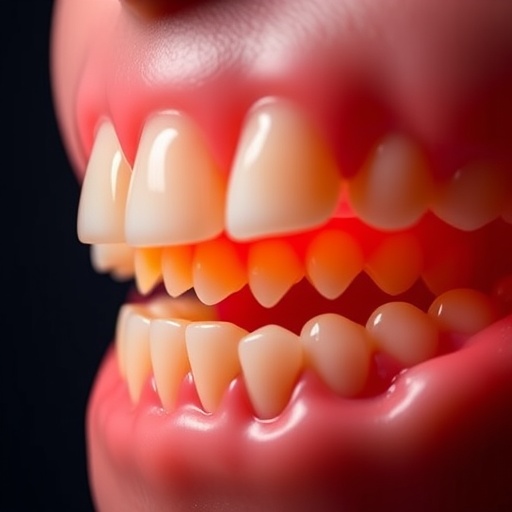The intricate relationship between preoperative anxiety and the performance of medical and dental students is a subject of growing interest within educational research circles. A recent observational simulation-based study led by Var, Cam, and Pektas has sought to explore this phenomenon in the context of endodontic skill execution among dental students. Their research, published in the notable journal BMC Medical Education, emphasizes the critical impact that emotional states, such as anxiety, can have on skill performance and subjective perceptions in clinical settings.
Preoperative anxiety, often defined as a state of apprehension related to anticipated medical procedures, can significantly affect patients. However, little has been said about its implications for the practitioners-in-training who engage in these procedures. This study prompts a reevaluation of how educational programs can better prepare students to handle anxiety-inducing situations. The examination of this relationship is not merely academic; it holds profound implications for the future of dental education and patient care.
The study focused on a cohort of dental students participating in simulation exercises that mimic real-life endodontic procedures. Endodontics, the branch of dentistry that deals with the treatment of the dental pulp and tissues surrounding the roots of a tooth, requires not only technical skills but also a calm and composed demeanor. The researchers set out to assess whether heightened levels of anxiety prior to these simulated procedures could hinder students’ performance and their self-assessment of competency.
By employing rigorous observational methods, the researchers gathered qualitative and quantitative data on the students’ anxiety levels through standardized questionnaires. These instruments allowed an effective measure of their psychological state before, during, and after the simulations. Interestingly, preliminary findings suggested a notable correlation between increased anxiety and reduced dexterity in executing complex endodontic tasks.
The implications of these findings become even more compelling when one considers the heightened stakes involved in real clinical settings. Adult patients enter dental practices with their anxieties, often exacerbated by anticipating painful procedures. Consequently, if dental students are unable to manage their anxiety effectively, not only could their technical performance suffer, but their ability to empathize and communicate with anxious patients can also be compromised. This dual impact poses serious concerns for the future of dental practice standards.
Another noteworthy aspect of the study involved the subjective perceptions reported by the students. After engaging in the simulation, they evaluated their own performance, reflecting on how anxiety affected their confidence and skills. The self-assessment data revealed interesting insights; many students acknowledged that their anxiety detracted from their performance, yet they also recognized areas where they excelled, suggesting an intricate interplay between their self-perception and emotional state. This phenomenon raises questions about how anxiety is perceived in educational settings and whether traditional grading systems accurately capture a student’s true abilities under stress.
Furthermore, the research identified an essential variable: the role of instructors and mentors in alleviating student anxiety. By providing real-time feedback and support during simulations, educators can help cultivate an environment that fosters resilience and composure among students. The study strongly advocates that dental educational institutions incorporate strategies that address mental well-being and emotional intelligence alongside technical skills.
As dental education evolves, integrating mental health resources and stress management techniques into the curriculum could yield transformative results. Workshops focused on mindfulness, relaxation practices, and counseling can equip future practitioners with the tools necessary to manage stress and anxiety effectively. The findings from Var et al.’s study underscore the relevance of psychological training in creating a culture of care not only for patients but for students as well.
Another avenue to consider is enhancing peer interactions during training. Collaborative exercises enable students to engage in a supportive environment where they can share experiences and coping strategies. The symbolic act of learning together, while navigating anxiety-laden scenarios, could foster a sense of camaraderie that benefits both performance and emotional well-being.
In contexts where anxiety is prevalent, technology also offers innovative solutions to aid in skill development. Virtual reality simulations can provide students with safe spaces to confront their anxieties. By allowing repeated practice in a controlled environment, students might experience decreased fear and increased competence. These technological advancements could revolutionize not only skill acquisition but also how anxiety is interpreted within educational frameworks.
Ultimately, the study conducted by Var, Cam, and Pektas serves as a clarion call to dental educators and institutions. It highlights the necessity of addressing mental health proactively in conjunction with technical training. As we strive towards producing competent dental professionals, it is paramount to recognize the psychological components that influence skill development. The success of future practitioners hinges not solely on their technical prowess but also on their ability to engage with their emotions and develop strategies for overcoming personal hurdles.
In conclusion, preoperative anxiety is a significant factor that influences not only the performance of dental students but also their perceptions of their abilities in high-stakes environments. The study opens the door for further research in this area, prompting educators to rethink how they prepare students for the realities of clinical practice. By fostering environments that prioritize mental health, we can cultivate skilled practitioners equipped not just with technical knowledge, but with the emotional acumen necessary to thrive in the complex world of dental care.
Subject of Research: Preoperative anxiety and its influence on endodontic skill performance and students’ subjective perceptions.
Article Title: Does preoperative anxiety influence endodontic skill performance and students’ subjective perceptions in an observational simulation-based study?
Article References:
Var, E., Cam, Y., Pektas, E. et al. Does preoperative anxiety influence endodontic skill performance and students’ subjective perceptions in an observational simulation-based study?.
BMC Med Educ 25, 1382 (2025). https://doi.org/10.1186/s12909-025-07957-3
Image Credits: AI Generated
DOI: 10.1186/s12909-025-07957-3
Keywords: Preoperative anxiety, endodontic skill performance, dental education, simulation-based study, emotional intelligence, stress management.




